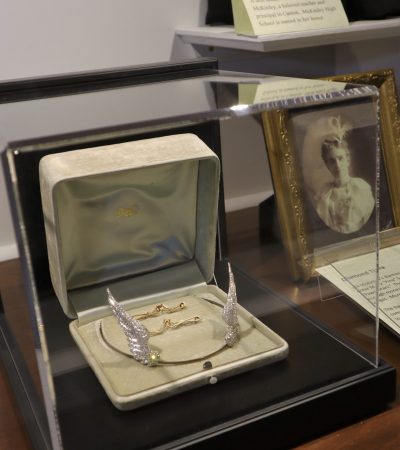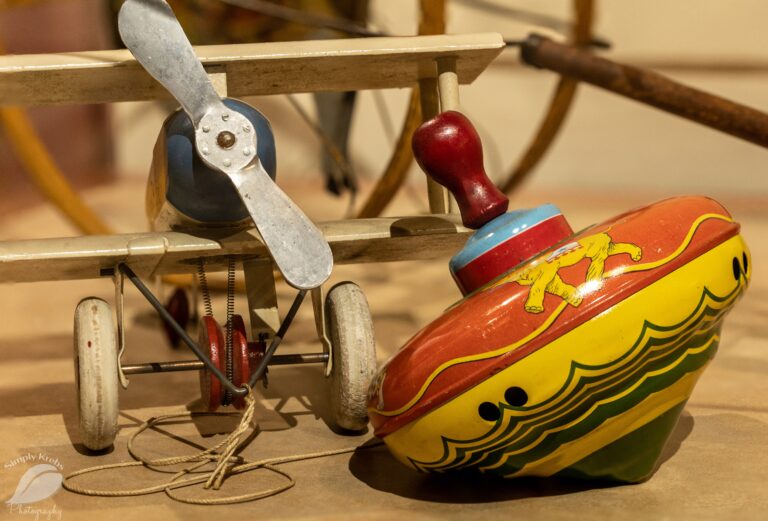We are dedicated to collecting and preserving the significant materials and records related to the history of Stark County and the presidential history of William McKinley.
The William McKinley Presidential Library & Museum collection holds over 42,000, ranging from the prehistoric period to the present day.
The objects in our collections allow us to share the life and accomplishments of our fallen 25th President, William McKinley, and the history of the county he was proud to call home.
Community generosity helps us achieve that goal. Our collection includes textiles, glass, ceramics, silver, jewelry, furniture, clothing and accessories, toys, tools, weapons and more. If you are interested in donating a piece of history to our museum please review the following guidelines:

Donation Process
Donations are evaluated to determine if the object(s) fit with our collecting policy and institutional needs and are in acceptable condition. Please do not bring potential donations to McKinley Museum unless you have an appointment with a museum staff member for that specific reason.
Donations are finalized after the item(s) have been examined in person by the Collection Manager and a Temporary Custody form has been completed by the donor.
The museum reserves the right to discard unsolicited donations and to decline gift offers prior to donation.
If you are interested in donating one or more objects to the museum, please complete a Museum Donation Inquiry form below.
Appraisals & Tax Credits
The American Association of Museums Code of Ethics prohibits museum employees from providing appraisals and/or discussing the value of donations being offered to the institution.
If you would like to include your donation to the museum in your tax filings you must have your object(s) valued by an appraiser before completing your donation to the museum.
Adopt an Artifact
Preparing materials for storage until they are chosen to be put on display, requires extensive time and materials. Donor-provided funds, though not required, are much appreciated to help alleviate the costs of processing collections and securing them into archival-safe materials. A donation of $50 per donation helps us to properly preserve your donated items for future generations.
Donation FAQs
According to our Mission Statement, the Museum collects items relating to the history of Stark County, including the life and career of the 25th President of the United States, William McKinley. If your donation does not pertain to our Mission Statement, the Staff will make suggestions for a more appropriate home for your artifact(s).
If you have books, photographs, or other paper materials, please contact the Archivist regarding your donation. For all other objects, fill out a Museum Donation Inquiry form at the bottom of this webpage. The Collection’s Manager will review your information and discuss if the items fit into the Museum’s collecting scope. If it does, they will ask you to make an appointment to bring it for further review.
We ask that you first submit a Museum Donation Inquiry form located at the bottom of this webpage. Donations will not be accepted without an scheduled appointment with the Collections Manager.
When you drop off a potential donation, you will be asked to fill out a Temporary Custody Agreement. This form indicates that you have left something at the Museum for consideration. This is the first step in the donation process. The donation is not official at this time. Once the Collections Manager or Archivist accepts the donation, you will be sent a Deed of Gift in the mail to sign and return. This is the legal document that officially transfers ownership from you to the Museum. Once the Deed of Gift is signed, the donation process is complete.
All donations MUST have signed paperwork in order become part of the Museum’s collection. The donor may choose to remain anonymous, but we still must have signed paperwork in order to prove that the item belongs to the Museum, no matter how small the donation.
Once the Deed of Gift has been signed, donations cannot be returned to the donor. Please do not offer items for donation to the Museum if you are not sure that you want to donate.
Your donation may be placed in the Permanent Collection or the Teaching Collection. Donations to the Permanent Collection are designated for preservation. These items are handled and processed according to the highest museum standards by trained professionals and are exhibited only under safe and secure conditions. Items in the Teaching Collection are used by our Education Department and will be utilized in special programs including school tours, education classes, summer camps, demonstrations, and other education activities.
Because of the Museum’s changing exhibition policy, we cannot guarantee that your donation will be on view at any given time. Space limitations and conservation concerns dictate that we cannot exhibit all of our artifacts at once. There are many objects that should not be exhibited frequently in order to protect them from handling, exposure to light, and other potentially harmful things. However, exhibitions are not the only way a Museum utilizes an artifact. Occasionally, collections are made available, by appointment, for study by scholars and members of the public.
Artifacts from the Permanent Collection may be loaned to other museums or cultural institutions, but only those that adhere to the same high standards of professional museum practice. Items are not loaned to individuals. The Museum does maintain several off-site exhibition spaces, but we require that artifacts be displayed in locked cases. Also, it is mandatory that other institutions provide insurance for all items that are loaned.
No, the Museum does not accept loans of this type. Long-term loans can create confusion in the future. Due to limited storage space, we cannot care for artifacts that are not owned by the Museum. Loans are accepted for specific purposes only, such as a temporary exhibition in the Keller Gallery, for a specified period of time.
Certainly! The Code of Ethics written by the American Association of Museums (AAM) and the International Council of Museums (ICOM) prohibits museum professionals from engaging in appraisal-related activities. For your own records, we recommend that you obtain an independent appraisal. Upon request, the Collections Manager will provide a list of resources to help you find an appropriate appraiser for your donation. The Museum will make your donation available for inspection to the appraiser of your choice. Your signed Deed of Gift serves as proof of your donation for tax purposes.
Museum Donation Inquiry

Please contact our Collections Manager, Kait Bergert,
with any questions you may have or submit our Museum Donation Inquiry form below.

